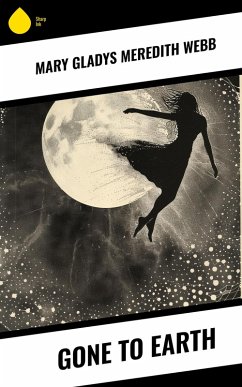In Mary Gladys Meredith Webb's novel "Gone to Earth," the delicate interplay between nature and humanity is explored through the life of Hazel Woodus, a wild and passionate young woman who finds herself torn between her love for the untamed wilderness of Shropshire and the constraints imposed by society. Webb employs a lush, poetic prose style, rich in imagery, that immerses readers in the enchanting yet harsh landscape that mirrors Hazel's internal conflicts. Set against the backdrop of early 20th-century England, the novel resonates with themes of individuality, spiritual quest, and the tension between modernity and pastoral life, making it an evocative piece of British literature that captures the zeitgeist of its era. Mary Webb, an early 20th-century writer, drawns upon her own experiences growing up in rural Shropshire to depict the intrinsic bond between the landscape and human emotion. Her affinity for nature and her own struggles against societal expectations deeply inform her characterizations and narrative choices, reflecting a profound sense of empathy and connection to the earth. Webb's acute observations of rural life and her poignant explorations of femininity and autonomy are encapsulated within this compelling tale. "Gone to Earth" is a must-read for those who appreciate lyrical storytelling that marries character depth with breathtaking descriptions of nature. Webb's poignant insights and emotional truths render this novel not only a captivating read but also a profound meditation on the search for identity and belonging in a rapidly changing world, making it essential for anyone interested in the intersections of nature, feminism, and literary tradition.
Dieser Download kann aus rechtlichen Gründen nur mit Rechnungsadresse in A, B, BG, CY, CZ, D, DK, EW, E, FIN, F, GR, HR, H, IRL, I, LT, L, LR, M, NL, PL, P, R, S, SLO, SK ausgeliefert werden.


